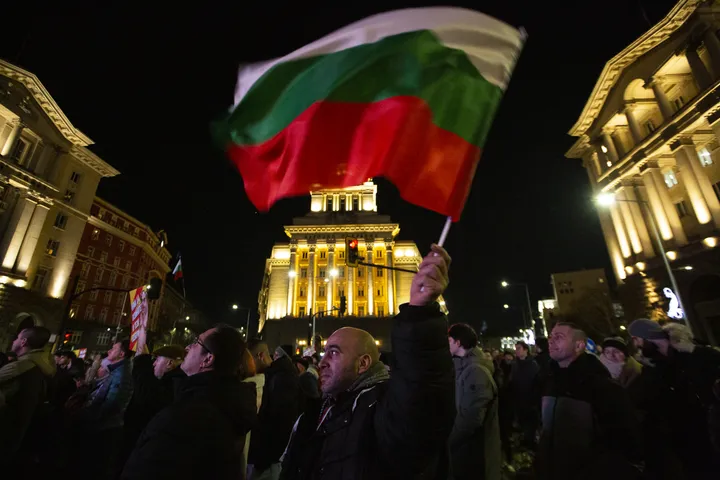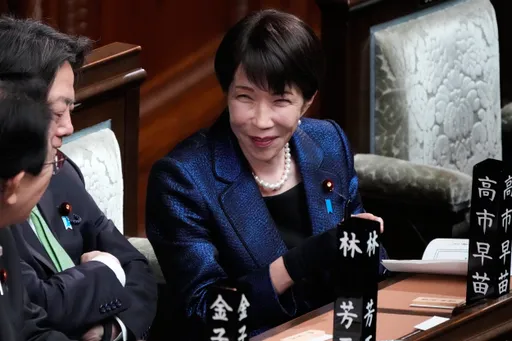“In this freedom movement, we will stand with our men. We will not stop until we achieve our Azaadi (freedom),” said a 17-year-old girl on September 12, a day after a woman was detained by Indian police in an uptown neighbourhood of Srinagar, the summer capital of India-administered Kashmir.
The Kashmir conflict has affected tens of thousands of Kashmiri people for almost 70 years, making their existence subservient to military decisions taken by the Indian state.
They know no other lifestyle except for the one that has been constructed by the decades-old conflict. The conversations on Kashmir have almost always been dominated by India or Pakistan's political perspective, with little or no thought spared for rampant human rights abuses and the suffocating military presence in Kashmir, which has one of the largest troop deployments in the world intricately spread across the disputed region.
What gets lost amidst this blatant black-and-white narrative are the voices of women. They have been reduced to mere emotional victims, whilst they have made a significant contribution to the Kashmiri resistance against India's state brutalities.
This time they are more visible than ever.
They are active participants in the region's freedom movement or as it is referred to in the local parlance, Tehreek-e-Azaadi. From being members of militant outfits to leading protests and rallies, they have opposed India's military policies in various ways.
Lately, since August 5, when India scrapped the nominal autonomy of the entire state of Jammu and Kashmir, a disputed territory between India and Pakistan since 1947, Kashmir saw an upsurge in protests. Kashmiri women came out in large numbers in several neighbourhoods to protest India's unilateral move.
TRT World recently met some women protesters in Srinagar city and spoke to them about their political aspirations.
“While I was a part of the rally I cannot think of anything but our Azaadi (freedom). Our emotions run very high that we hardly care about any pellet or bullet,” said Mehjabeen, a resident of Srinagar's uptown Soura neighbourhood.
A similar rally was held on August 5 in Pazalpora, Bandipora, where women's participation in protests was significant. The local police conducted raids in the neighbourhood and arrested several men and a woman. Amongst the detainees were journalists, teachers, trade union members and civilians with a history of participating in previous protests against New Delhi's rule.
In Soura's Anchar neighbourhood, however, people thwarted police raids by building makeshift barricades and digging up the main road. Young men and women took turns in patrolling the area.
On September 12, TRT World visited Anchar. Several women paced around their houses, while some of them sat on their patios, watching over the main street, their gaze betraying both a hint of anger and authority.
“It was us women who gave the men the idea of how to block the entrances. We passed on small and big stones, wooden planks, tin sheets, from one end to another,” said a local woman.
One young woman was busy making posters for the upcoming Friday protest. A teacher by profession, Rehana Jan expressed her anger and aspirations through these posters.
“Our fight is bigger than Article 370. The abrogation of the article stripped us off our identity, however, our battle is older than this. We are fighting for Kashmir’s liberation and until that is achieved we will keep fighting, even if it takes several months or years.”
At 2pm, while the women were offering Friday prayers in the ladies' section of the neighbourhood mosque, one woman with a firm voice raised the 'we want freedom' slogan.
There was not a degree of fear in the eyes of women, regardless of their age.
After the protest, which was entirely peaceful, the police fired pellets from a distance injuring four people. This infuriated women and they picked up stones. Before they could have hurled them at the police, they got to know that some of the neighbourhood boys were detained. They put down the stones and gave the police a chase instead.
Back in the neighbourhood, Amina Jan treated pellet victims. She is a community paramedic. Other women assisted her with water, bandages, and other medical instruments. The victims avoid going to hospitals fearing police reprisals. Locals also allege that the police blocked ambulances from entering the neighbourhood, as a way of inflicting collective punishment on the community.
Rabiya was briefly detained by the police and kept in a room full of male detainees.
“I kept asking them to let me go as I have a two-year-old daughter to feed. To which the SHO (police officer) replied ‘don't worry, if your baby dies, they will bring the body here.' He also threatened me saying he'll slaughter the people of my neighbourhood,” she said a day after she was detained and released after a few hours.
Rabiya is still firm in her belief that Kashmir deserves to be free of India's rule. “Nothing is above our freedom and dignity,” she said.
The same day another woman named Suriya was allegedly detained for about two hours by the police. Speaking to TRT World she said the police wanted to punish her for seeking a meeting with her brother-in-law who was arrested and placed under police custody on September 13.
Four-year-old Rahmat has stopped eating her meals ever since her father Mushtaq Wani, a fruit vendor, was detained by the police and transported several hundred miles away to Agra prison. Wani was arrested by the police on August 9 when he was returning home from a protest rally. A day later, his wife went to see him in the police lockup. She said the police told her that Wani will be released soon but instead they booked him under a draconian Public Safety Act, which allows the police to detain people for up to two years without trials.
“We don't have money and resources to go to Agra. My daughter wakes up in the middle of the night, scared and confused,” said Jawahira, Wani’s wife. “He was the only breadwinner. Now I buy groceries on credit. Sometimes I think I should find some work, but I’m mentally occupied right now. I do not know where to start.”























